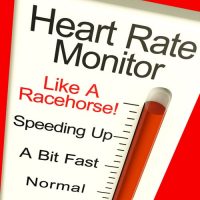
5 Benefits of Using a Heart Rate Monitor When You Exercise
Could wearing a heart rate monitor benefit your workouts? In this article, you’ll discover 5 reasons, backed by science, that wearing a heart rate monitor can be of benefit to you.
recovery heart rate

Could wearing a heart rate monitor benefit your workouts? In this article, you’ll discover 5 reasons, backed by science, that wearing a heart rate monitor can be of benefit to you.

If you were to ask a health professional what a normal resting heart rate is they’d tell you between 60 and 100. Yet, having a heart rate at the upper end of this range has a surprising health risk. Find out what a high-normal heart rate says about health and longevity.

Should you invest in a heart rate monitor? A heart rate monitor isn’t an absolute necessity. After all, there are other ways to measure exercise intensity – but there are advantages to using one. Find out what they are.

Are you aging slowly or faster than you should? There isn’t a single test that will tell you what your chronological age is, but if you want a better idea, try these simple tests you can do at home to see where you stand. They’ll give you a rough idea of whether you’re doing the right thing from a lifestyle standpoint to slow down the aging process – and alert you to things you need to change.

Your heart beats a certain number of beats per minute, corresponding to your resting heart rate. This value and another measure of physical fitness, your recovery heart rate, are indicators of how fit you are from a cardiovascular standpoint. They also may be a marker for future heart problems. Find out why it’s important to know your resting heart rate and how rapidly your heart recovers after a workout.